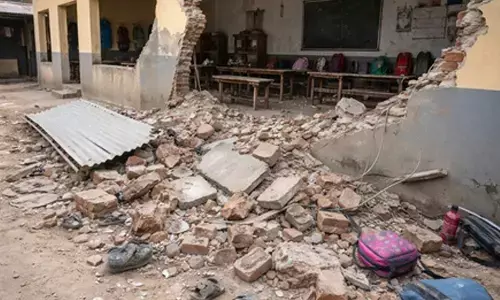World Thinking Day 2024: 5 Effective Methods for Student Cognitive Development

World Thinking Day 2024
This year's World Thinking Day calls for future champions! Learn to think critically like a detective, ninja reader, or puzzle master. Work with friends, use tech wisely, and turn thinking into action for a thriving future. Together, we can be the superheroes our world needs!
World Thinking Day is a special occasion where we reflect on the importance of critical thinking in our lives and especially in education. Critical thinking is like a mental superpower, empowering individuals to analyze, evaluate, and solve problems effectively. As we commemorate World Thinking Day 2024, let's explore five smart and practical ways to cultivate critical thinking skills among students, ensuring they are equipped to navigate the complexities of the world around them.
Encouraging Curiosity Through Questioning
Curiosity is the fuel that drives critical thinking. Teachers can foster this curiosity by encouraging students to ask questions about the world around them. By posing open-ended inquiries such as "why," "how," and "what if," students are prompted to explore deeper into subjects, uncovering new insights and perspectives. Questioning also stimulates intellectual curiosity, motivating students to seek answers and engage in active learning.
Collaborative Problem-Solving Activities
Collaborative problem-solving activities provide students with opportunities to work together, share ideas, and brainstorm solutions. Whether it's tackling complex puzzles, participating in group debates, or collaborating on projects, these activities promote teamwork and critical thinking skills. Through collaboration, students learn to consider diverse viewpoints, communicate effectively, and negotiate compromises, essential skills for success in both academic and real-world contexts.
Real-World Problem Solving
Integrating real-world problems into the curriculum challenges students to apply their critical thinking skills in practical scenarios. Teachers can present students with authentic challenges relevant to their lives, such as designing sustainable solutions for environmental issues or addressing community needs. By engaging in problem-solving tasks, students develop analytical reasoning, creative problem-solving, and decision-making skills, preparing them to tackle the complexities of the world beyond the classroom.
Developing Information Literacy
In today's digital age, information is readily accessible, but not all information is reliable or accurate. Teaching students to critically evaluate sources, discern fact from opinion, and identify biases is essential for developing information literacy skills. Teachers can incorporate activities that encourage students to analyze news articles, evaluate websites, and fact-check information. By honing their information literacy skills, students become discerning consumers of information, equipped to navigate the vast sea of knowledge with confidence.
Reflection and Metacognition
Reflection is a vital component of the learning process, allowing students to evaluate their thinking, identify strengths and weaknesses, and set goals for improvement. Teachers can facilitate reflection through journaling, group discussions, or reflective writing assignments. By encouraging metacognitive awareness, students develop a deeper understanding of their own thinking processes, learning strategies, and areas for growth. Reflection fosters self-directed learning and empowers students to become lifelong learners capable of continuous self-improvement.
By implementing these five strategies—encouraging curiosity, promoting collaboration, integrating real-world problem-solving, developing information literacy, and fostering reflection—we can empower students to become resilient, independent thinkers equipped to thrive in an ever-changing world. Together, let's cultivate a culture of critical thinking in education, laying the foundation for a brighter and more intellectually vibrant future.








